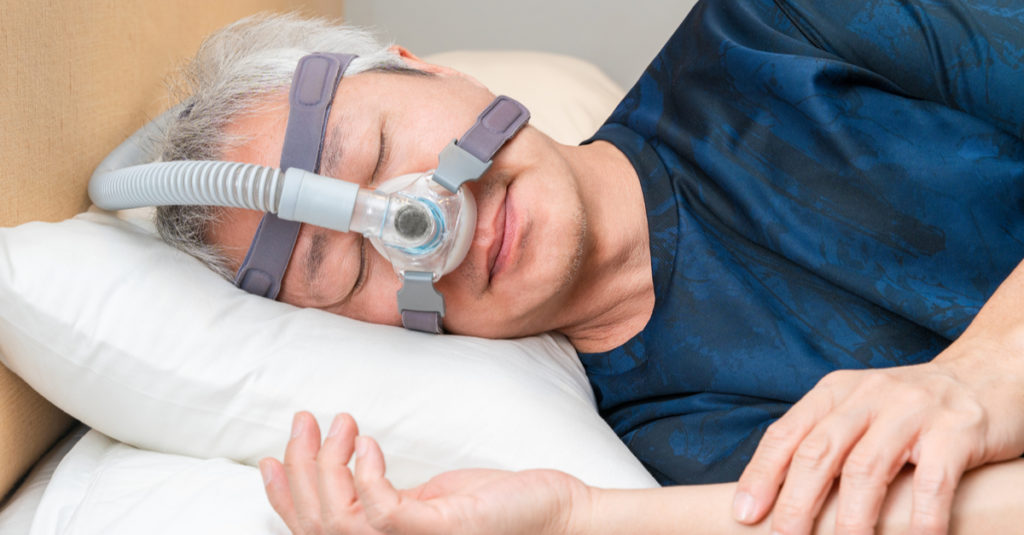
Sleep apnea, particularly obstructive sleep apnea (OSA), is a prevalent sleep disorder characterized by repeated interruptions in breathing during sleep. These interruptions can lead to fragmented sleep and reduced oxygen levels in the blood. Emerging research has established a significant link between sleep apnea and various forms of heart disease, underscoring the importance of understanding and addressing this connection.
Understanding the Connection
The relationship between sleep apnea and heart disease is multifaceted:
- Increased Cardiovascular Risk: Individuals with OSA face a heightened risk of developing cardiovascular conditions. Studies indicate that OSA can increase the risk of heart failure by 140%, stroke by 60%, and coronary heart disease by 30%.
- Hypertension (High Blood Pressure): OSA contributes to elevated blood pressure due to frequent drops in blood oxygen levels during sleep, which trigger the release of stress hormones. These hormones elevate heart rate and blood pressure, increasing the risk of hypertension.
- Arrhythmias (Irregular Heartbeats): The abrupt drops in blood oxygen levels during OSA episodes can lead to abnormal heart rhythms, such as atrial fibrillation. These arrhythmias can diminish the heart's efficiency and elevate the risk of stroke.
- Atherosclerosis (Hardening of the Arteries): OSA-induced inflammation and oxidative stress can damage blood vessel linings, promoting the development of atherosclerosis. This condition restricts blood flow and can lead to heart attacks.
Recent Research Findings
A study by UT Southwestern Medical Center found that OSA is linked to an increased risk of cardiovascular disease in adults, even those younger than 40. This research highlights the importance of early detection and treatment of OSA to prevent heart-related conditions.
Additionally, a National Institutes of Health (NIH)-funded study explained that the increased cardiovascular risks for people with OSA are largely due to reduced blood oxygen levels caused by interrupted breathing.
Implications for Treatment
Addressing sleep apnea can have a positive impact on heart health:
- Continuous Positive Airway Pressure (CPAP) Therapy: CPAP is a common treatment for OSA that keeps the airway open during sleep. Regular use of CPAP has been shown to lower blood pressure, reduce arrhythmia occurrences, and improve overall cardiovascular health.
- Lifestyle Modifications: Weight loss, regular exercise, and avoiding alcohol and sedatives before bedtime can alleviate OSA symptoms and, in turn, reduce cardiovascular risks.
Conclusion
The link between sleep apnea and heart disease is well-established, with untreated OSA contributing to various cardiovascular conditions. Early diagnosis and treatment of sleep apnea are crucial steps in mitigating these risks and promoting heart health. Individuals experiencing symptoms of sleep apnea, such as loud snoring, daytime fatigue, or observed pauses in breathing during sleep, should consult a healthcare provider for evaluation and potential intervention.
References:
- Obstructive Sleep Apnea and Cardiovascular Disease: Role of the ...
- Is Sleep Apnea Connected to Heart Disease? - Sleep Foundation
- How does sleep apnea affect the heart? - Harvard Health
- Sleep Apnea and Cardiovascular Disease | Circulation - AHA Journals
- Experts urge treatment for sleep apnea, as it can worsen heart ...
Disclaimer
The watching, interacting, and participation of any kind with anything on this page does not constitute or initiate a doctor-patient relationship with Veripeudic.com. None of the statements here have been evaluated by the Food and Drug Administration (FDA). The products of Veripeudic.com are not intended to diagnose, treat, cure, or prevent any disease. The information being provided should only be considered for education and entertainment purposes only. If you feel that anything you see or hear may be of value to you on this page or on any other medium of any kind associated with, showing, or quoting anything relating to Veripeudic.com in any way at any time, you are encouraged to and agree to consult with a licensed healthcare professional in your area to discuss it. If you feel that you’re having a healthcare emergency, seek medical attention immediately. The views expressed here are simply either the views and opinions of Veripeudic.com or others appearing and are protected under the first amendment.
Veripeudic.com promotes evidence-based natural approaches to health, which means integrating her individual scientific and clinical expertise with the best available external clinical evidence from systematic research. By individual clinical expertise, I refer to the proficiency and judgment that individual clinicians acquire through clinical experience and clinical practice.
Veripeudic.com does not make any representation or warranties with respect to the accuracy, applicability, fitness, or completeness of any multimedia content provided. Veripeudic.com does not warrant the performance, effectiveness, or applicability of any sites listed, linked, or referenced to, in, or by any multimedia content.
To be clear, the multimedia content is not intended to be a substitute for professional medical advice, diagnosis, or treatment. Always seek the advice of your physician or other qualified health providers with any questions you may have regarding a medical condition. Never disregard professional medical advice or delay in seeking it because of something you have read or seen in any website, video, image, or media of any kind. Veripeudic.com hereby disclaims any and all liability to any party for any direct, indirect, implied, punitive, special, incidental, or other consequential damages arising directly or indirectly from any use of the content, which is provided as is, and without warranties.

